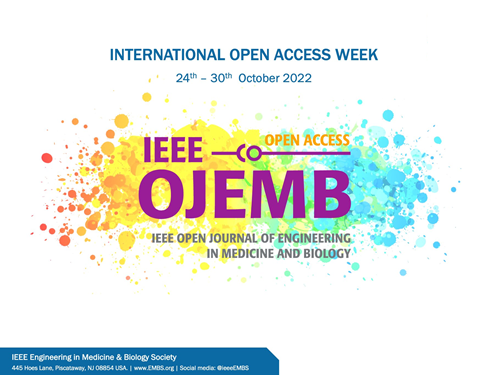Neuromodulation Improves Stress Urinary Incontinence-Like Deficits in Female Rabbits
IF 2.9
Q3 ENGINEERING, BIOMEDICAL
IEEE Open Journal of Engineering in Medicine and Biology
Pub Date : 2024-06-03
DOI:10.1109/OJEMB.2024.3408454
引用次数: 0
Abstract
神经调节可改善雌兔压力性尿失禁样缺陷
目的:压力性尿失禁(SUI)影响着三分之一的女性人口,其特征是在打喷嚏、大笑或咳嗽等腹部用力时不自主漏尿。研究表明,对球海绵体神经(BsN)进行急性神经调节可提高老年和多胎兔子的膀胱效率。本研究调查了亚慢性 BsN 神经调节对缓解成熟多胎兔 SUI 类缺陷的疗效,这些缺陷的特点是漏尿增加和漏点压力降低。研究结果与阴性对照组相比,使用排尿点测定法,我们观察到 BsN 刺激 30 天后,漏尿事件减少了 40%,这与每日排尿量增加 60%、排尿量增加 10 倍以及排尿效率和漏尿点压力提高有关。结论在多胎兔中,BsN 神经调节改善了类似 SUI 的重要指标,包括膀胱容量和尿道闭合,支持使用这种生物电子方式治疗 SUI。
本文章由计算机程序翻译,如有差异,请以英文原文为准。
求助全文
约1分钟内获得全文
求助全文
来源期刊

IEEE Open Journal of Engineering in Medicine and Biology
ENGINEERING, BIOMEDICAL-
CiteScore
9.50
自引率
3.40%
发文量
20
审稿时长
10 weeks
期刊介绍:
The IEEE Open Journal of Engineering in Medicine and Biology (IEEE OJEMB) is dedicated to serving the community of innovators in medicine, technology, and the sciences, with the core goal of advancing the highest-quality interdisciplinary research between these disciplines. The journal firmly believes that the future of medicine depends on close collaboration between biology and technology, and that fostering interaction between these fields is an important way to advance key discoveries that can improve clinical care.IEEE OJEMB is a gold open access journal in which the authors retain the copyright to their papers and readers have free access to the full text and PDFs on the IEEE Xplore® Digital Library. However, authors are required to pay an article processing fee at the time their paper is accepted for publication, using to cover the cost of publication.
 求助内容:
求助内容: 应助结果提醒方式:
应助结果提醒方式:


